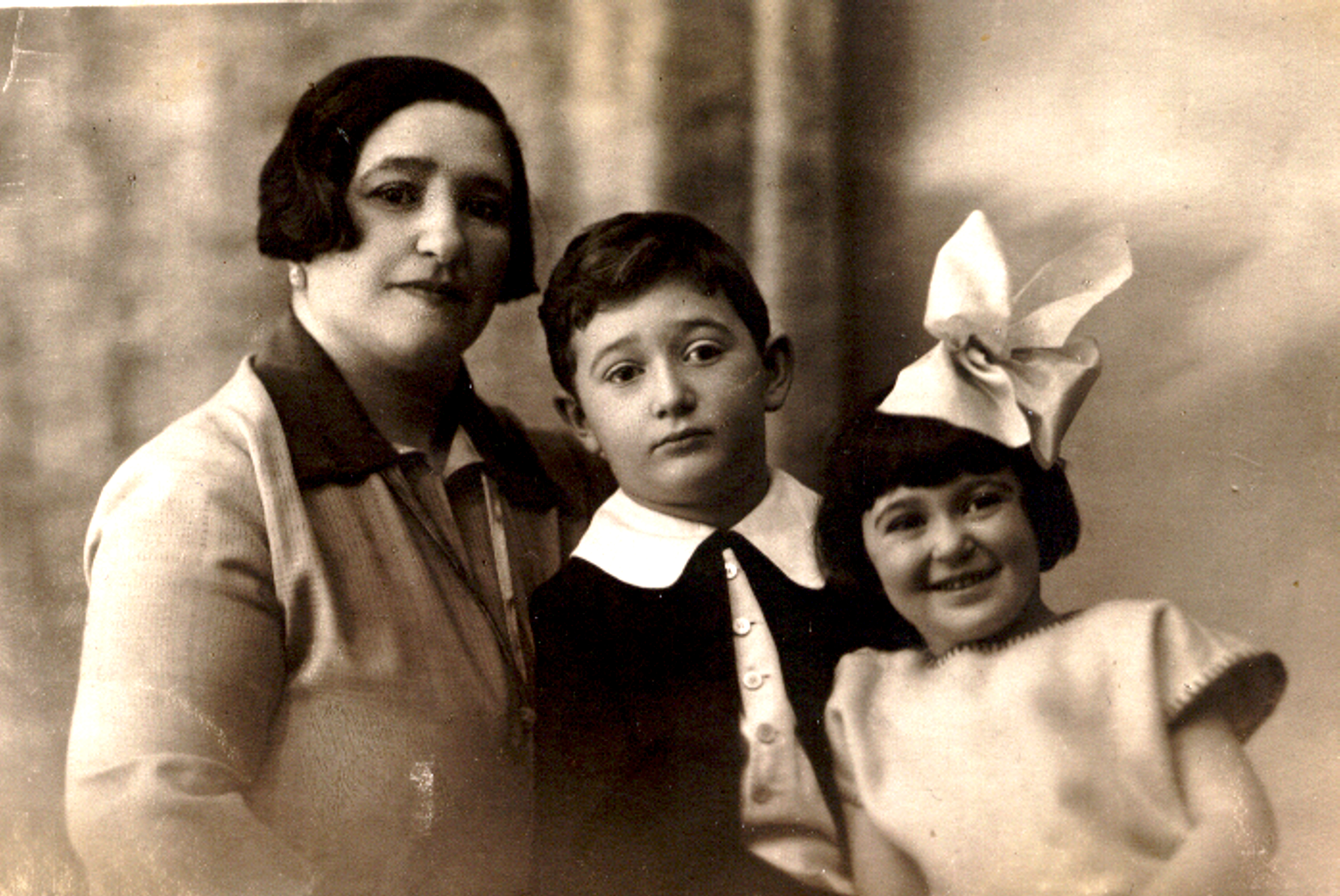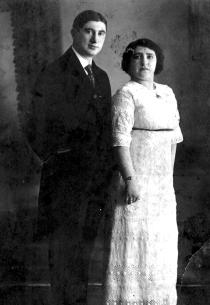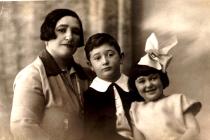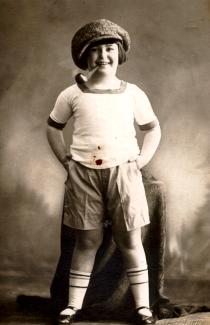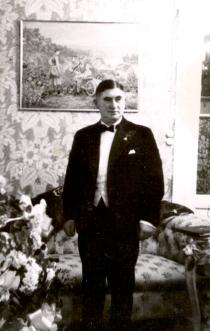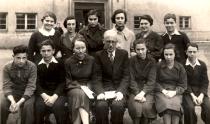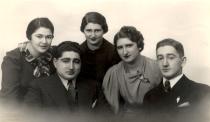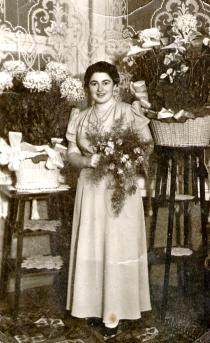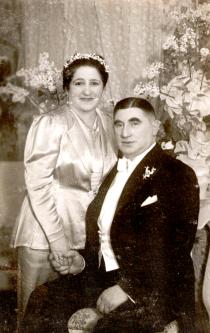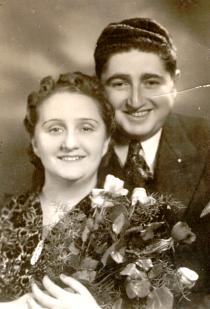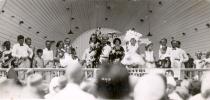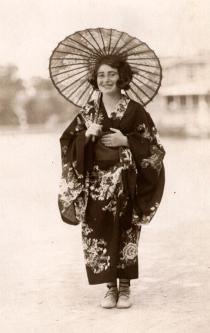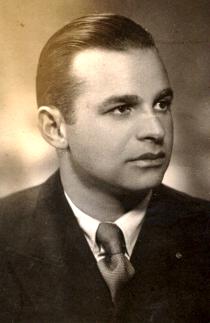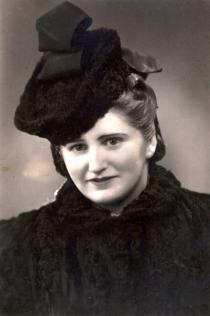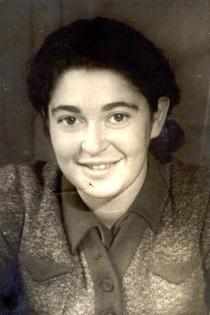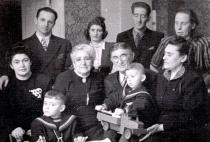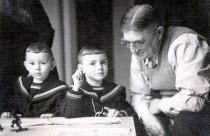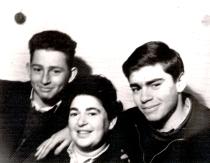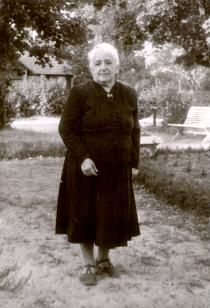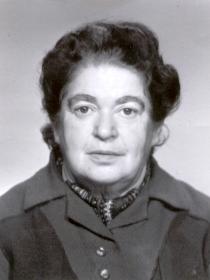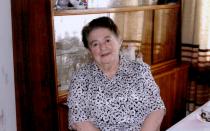This is my mother Frieda Berkovits with my brother Samuel and sister Ida. The picture was taken in Tallinn in 1923.
There were five children in the family. The eldest brother, Samuel, was named after my maternal grandfather. He was born on 4th April 1915. My elder sister Ida was born on 11th September 1916. My second sister Vera was born on 14th September 1918. Her Jewish name was Dveira. Rudolf was born on 9th November 1919. I, the youngest, was born in 1922. I was named Liya.
We mostly spoke Yiddish at home, sometimes German was generally accepted in Baltic countries. All of us knew Russian as well. My parents were very religious. There were people who prayed in the synagogue twice a day, in the morning and in the evening, but this was not practiced in my family. We respected and observed all the other Jewish traditions. Friday evening we marked the Sabbath. My mother lit candles and prayed. Then we had a festive dinner.
Our house was known for tradition, which implied that anybody could come to us for the Sabbath dinner without invitation. Those who didn't have a place to have their Sabbath meal were hospitably invited to our house. Our relatives always came on Sabbath evening. There were also the visitors who didn't have a chance to get home in time for the Sabbath. We were happy to see everybody. The next day it was a rule for parents to go to the synagogue. They took the children with them. We went to the synagogue on holidays as well.
My mother was involved in charity work. She was the chairman of the ladies Zionist organization WIZO. My mother helped poor Jews a lot. Every day students from poor families came to our home for lunch. One boy, whose parents were divorced, lived with us for a year as he was lonely. My mother lead a group of women who visited the poor, gave them food and presents, and tried to support them the best they could. WIZO ladies collected clothing and footwear from rich families and then distributed them to poor people. There was a buffet in our Jewish school where rolls, sandwiches, coffee, tea and stewed fruit were sold. Every day during recess, WIZO ladies served children from the buffet. My mother was also behind the counter. Apart from that, WIZO ladies baked rolls and cakes for children and handed them out for free. My mother knew all the students from the poor families in the school and always took care of them. She was also a member of the school's parents? association.
Having finished at the Jewish high school both of my elder brothers entered the economics department at Tartu University. My sister Ida was afflicted with pneumonia in 1939. There were no antibiotics at the time and they didn't know how to treat the disease, so. she died within a couple of days. Ida was buried in the Jewish cemetery in Tallinn in accordance with Jewish rites.
